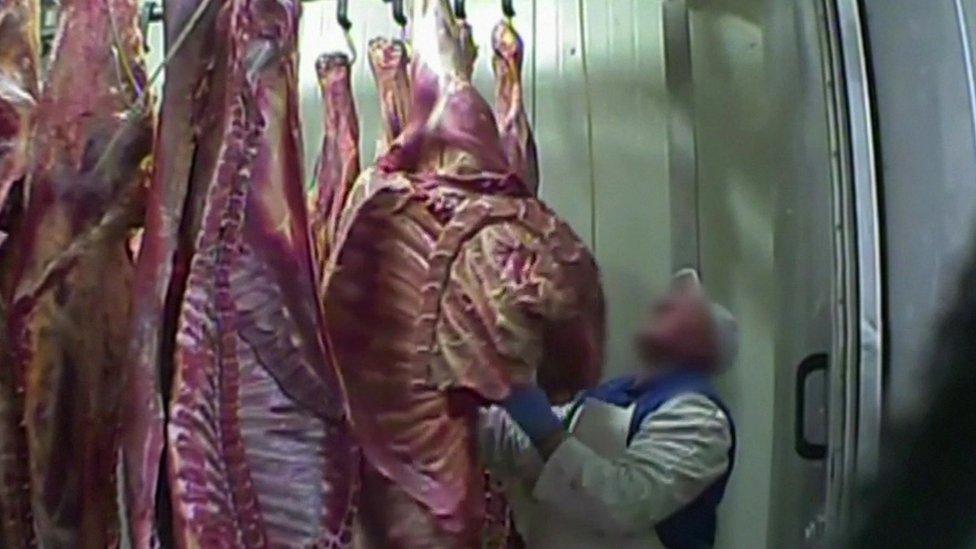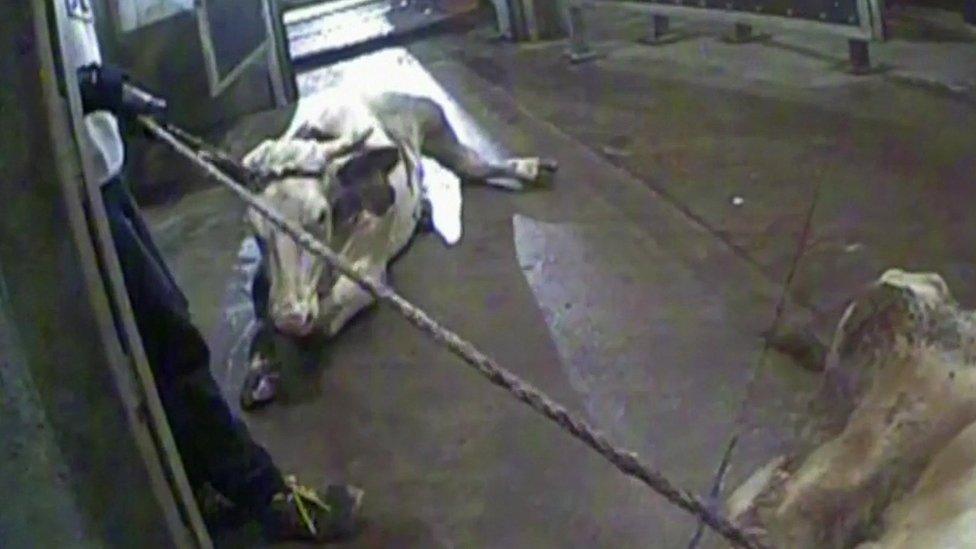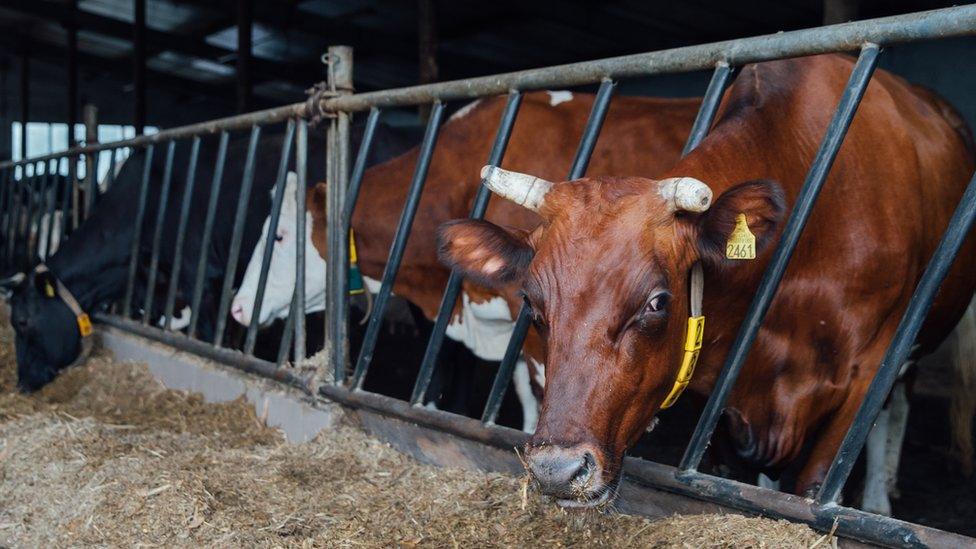Beef scare: Polish bad meat spreads to 11 EU states
- Published

Undercover footage revealed workers cutting out bad bits of meat on carcasses
Eleven EU countries have imported beef from a Polish abattoir accused of handling sick cows, and urgent checks are now under way, EU officials say.
Poland has identified 9.5 tonnes of beef from the plant, now closed down, 2.5 tonnes of which was exported.
"Withdrawal and destruction of the meat is ongoing," the EU Commission said.
Besides Poland, it named the affected countries as: Estonia, Finland, France, Hungary, Lithuania, Portugal, Romania, Spain, Sweden, Germany and Slovakia.
The scandal erupted because of covert filming at the abattoir near Ostrow Mazowiecka in north-eastern Poland. The video was broadcast by Polish TVN 24., external
It showed cows that were too sick to stand being dragged from lorries into the slaughterhouse.
Poland's chief veterinary officer, Pawel Niemczuk, said the plant was involved in "illegal activities, as slaughter was carried out deliberately at night, in order to avoid official supervision".
He insisted that meat on sale in Polish shops was safe, as the suspect beef had been quickly withdrawn.

The video showed sick cows being dragged along the floor
EU food alert
On Tuesday, Poland triggered the EU's Rapid Alert System for Food and Feed (RASFF), informing other member states, the EU Commission says.
The beef scare recalls the 2013 horsemeat scandal, which exposed the complexity of meat sales in the EU single market. That scandal triggered product recalls, as officials struggled to trace suspect meat.
EU Commissioner for Health and Food Safety Vytenis Andriukaitis says EU food inspectors will be in Poland from Monday.
"The priority today is to trace and withdraw from the market all the products originated from this slaughterhouse. I call on the member states affected to take swift action," he said.
He urged Poland to impose strong penalties on "the perpetrators of such criminal behaviour that could pose a risk to public health and portrays an unacceptable treatment of animals".

Meat from Polish farms is sold widely across the EU
In 2017, Poland produced some 558,500 tonnes of beef and beef products. That puts Poland seventh in EU beef production, behind (in ascending order): Ireland, Spain, Italy, the UK, Germany and France. About 85% of Polish beef is exported.
Swedish inspections
Earlier on Thursday, Sweden said it had imported 230kg (507lb) of the suspect beef.
An inspector at Sweden's National Food Agency, Aron Linden, said four Swedish wholesalers had bought it - three in the Stockholm area and one in Skane, in the south.
"We don't know which meat products it goes into," he told the BBC. "We know the companies bought different meat cuts, but we don't think they did anything wrong."
About 250kg of beef from the Polish abattoir turned up in Finland, Finnish state broadcaster YLE reported.
Sweden is still importing beef from Poland despite the scandal over that one abattoir, Mr Linden said. "Many companies buy beef from Poland," he added.
In the EU, he explained, the exporting country is responsible for inspections before the meat reaches foreign buyers. It is not checked at the border, because the EU single market ensures a free flow of goods.
UK Revenue and Customs (HMRC) data shows that in 2017 the UK imported £64.4m ($85m) worth of Polish beef - about 16.5m kg.
Polish beef exports to the UK are roughly the same as those from the Netherlands. Ireland is a much bigger beef exporter to the UK: in 2018 it provided some £723m worth.
The EU Commission says that, before slaughter, all live animals have to be inspected in the presence of an official vet.
EU rules also require inspection of all carcasses after slaughter, again under veterinary supervision.
Animals cannot be declared fit for human consumption if they have any animal disease or pose any other health risk, the Commission says.
And EU animal welfare rules forbid any dragging of animals unable to walk.